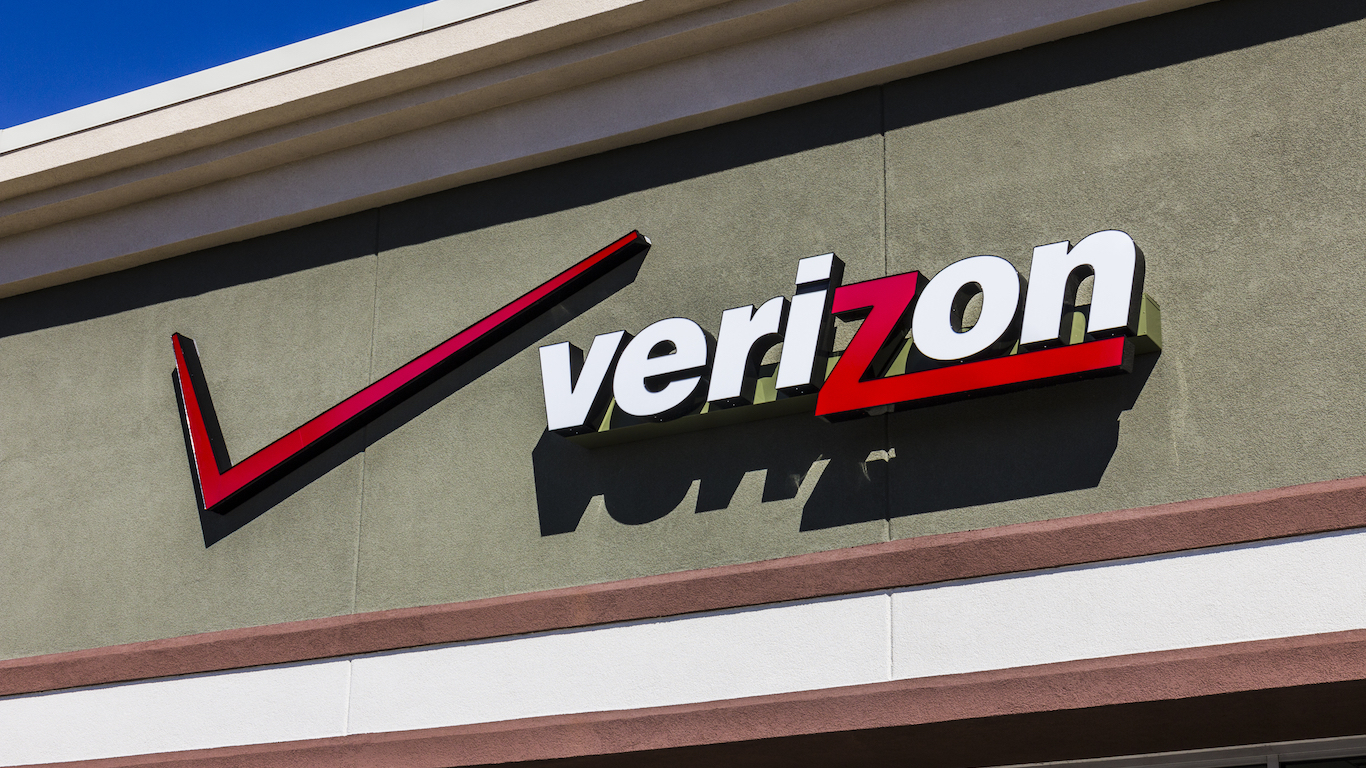Telecom & Wireless
Why Credit Sees Big Verizon Upside and More Downside for AT&T

Published:
Last Updated:

The wireless wars continue, and the major wireless and telecom carriers keep looking ever less similar compared to years past. With Verizon Communications Inc. (NYSE: VZ) going into more online and mobile efforts with AOL, Yahoo and online ad-focused efforts, AT&T Inc. (NYSE: T) has acquired Time Warner and looks to be diversifying into content creation and owning network properties. Credit Suisse sees big upside for one and more downside for another.
On a day when investors have to worry about trade wars and NATO-bashing hitting the markets, Credit Suisse’s Brian Russo has initiated coverage on the telecom and media space with a very mixed view of the two major legacy wireless carriers. As a reminder, traditional new Buy and Outperform ratings in Dow Jones industrial average and S&P 500 stocks are coming out with implied upside of 8% to 10% at this stage in the bull market.
AT&T was started as Underperform and assigned a mere $29 price target at Credit Suisse. The prior close was $32.50, so the implied downside for investors, before considering AT&T’s monster dividend yield of 6%, was 11%. AT&T was called out as a convergence conglomerate after its recent acquisitions.
Verizon was started with an Outperform rating and assigned a $58 price target. The call noted that its wireless focus is starting to pay dividends for the company. This call implied upside of 13%, before taking Verizon’s 4.6% dividend yield into consideration.
On Verizon, Russo’s bullish call said:
We believe wireless competition has stabilized and wireless revenue is returning to sustainable growth near-term, while Verizon has invested enough in pre-positioning for 5G that this important technology shift in the next few years should, at a minimum, not be a share loss event for Verizon. Furthermore, after two years of deterioration, Verizon’s already industry-leading returns should start to improve again via its major $10 billion cost savings plan, stable capex spending (5G is less expensive than feared and fixed wireless success-based post-trials), record low churn, the benefit of tax reform and abstinence from dilutive M&A. Interestingly, Verizon having remained focused on its core wireless business now meaningfully differentiates it from AT&T as an investment vehicle, and the shift to new, tech-focused CEO Mr. Vestberg suggests to us an even lesser likelihood of media/cable M&A going forward.
Russo wonders if AT&T’s convergence efforts are going to work. His thesis for the additional downside risks noted:
AT&T has become the first communications company to bring “convergence” in-house, owning leading businesses in connectivity, pay TV and media. Are they well positioned? Did they buy the right businesses? The outlook for wireline and pay video looks very challenged to us; media will ultimately need greater scale, needs to shift to global direct-to-consumer distribution (taking margins down), and we see elevated execution risk under AT&T’s ownership; and wireless, while stabilizing, remains mature, including meaningful 5G revenue unlikely to materialize near-to-mid term. With its top line challenged, capital deployment becomes the focus. We do not see capex moderating given new spectrum band & 5G buildouts, while the balance sheet has been levered up pursuing inorganic growth and AT&T’s free cash flow is mostly dedicated to paying its dividend. Thus, we see little opportunity to use capital to improve its low returns or offset operational challenges.
It turns out the telecom stocks were following the directional recommendation of the calls on Wednesday rather than following the downward pressure in the broader equity markets.
AT&T shares were down 0.9% to $32.21 on Wednesday morning. The $29 price target from Credit Suisse compared with a prior Thomson Reuters consensus target price of $37.27, and the stock has a 52-week trading range of $31.17 to $39.80. Shares were last seen down 16% so far in 2018.
At the same time, Verizon’s stock traded up 0.4% to $51.54 Wednesday morning. That $58 price target in Russo’s call is above the prior consensus analyst target of $55.88. Verizon has a 52-week range of $43.00 to $54.77, and its shares have fallen far less than rival AT&T, with a 3% total return in 2018. That said, the shares were last seen trading up over 18% from a year ago.
Retirement planning doesn’t have to feel overwhelming. The key is finding professional guidance—and we’ve made it easier than ever for you to connect with the right financial advisor for your unique needs.
Here’s how it works:
1️ Answer a Few Simple Questions
Tell us a bit about your goals and preferences—it only takes a few minutes!
2️ Get Your Top Advisor Matches
This tool matches you with qualified advisors who specialize in helping people like you achieve financial success.
3️ Choose Your Best Fit
Review their profiles, schedule an introductory meeting, and select the advisor who feels right for you.
Why wait? Start building the retirement you’ve always dreamed of. Click here to get started today!
Thank you for reading! Have some feedback for us?
Contact the 24/7 Wall St. editorial team.